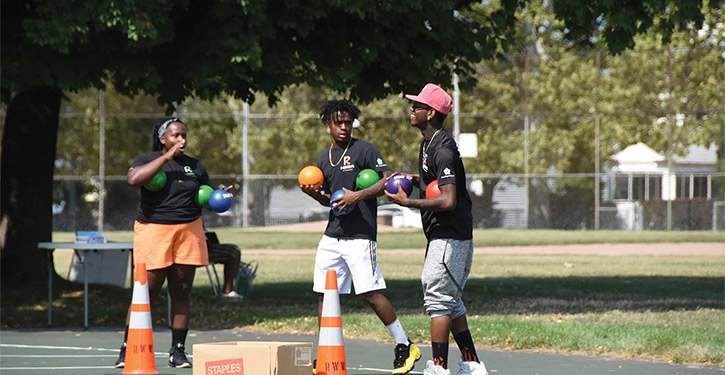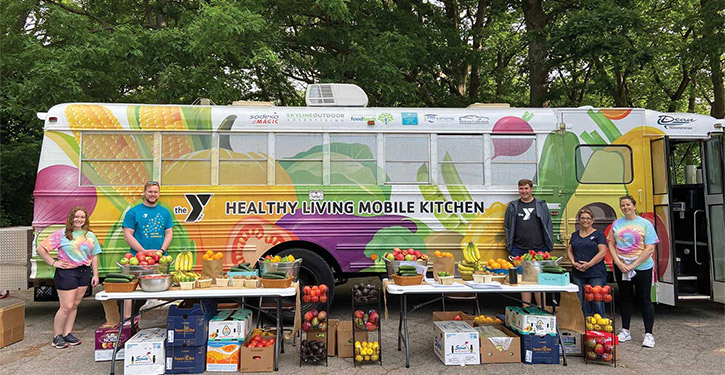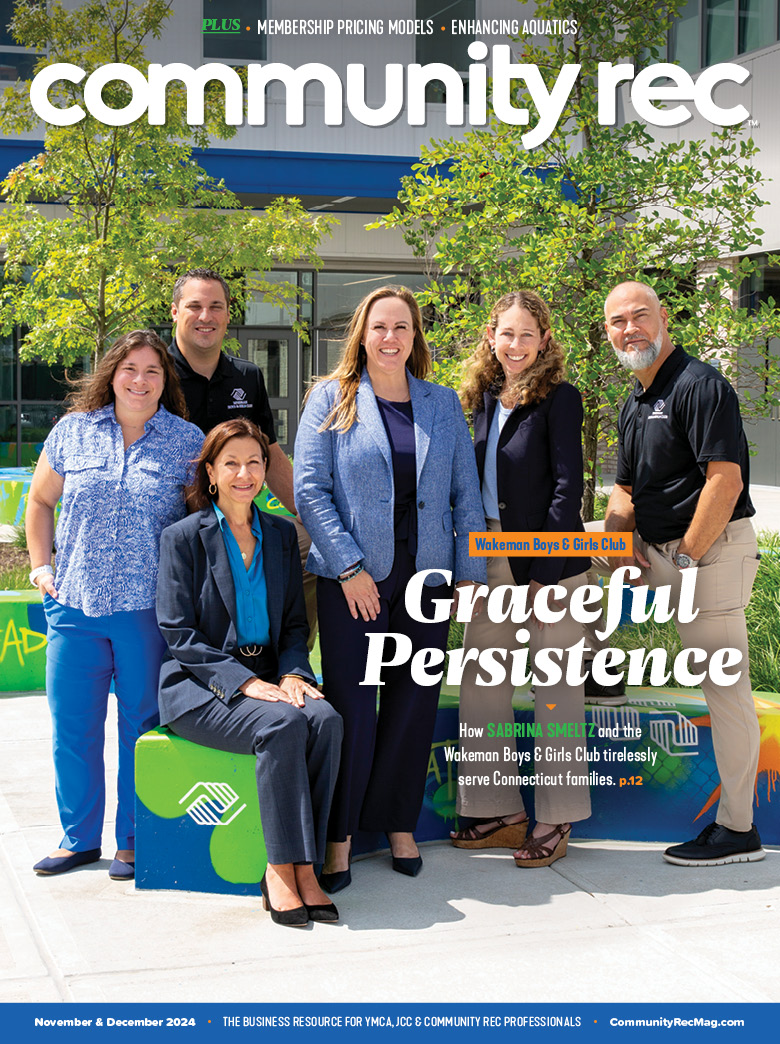Rec centers are finding success through mobile programming.
Over a decade ago, the city of Rochester, New York, was searching for a better way to foster equity in access to recreational programming for all community youth.
That’s when the Department of Recreation and Human Services decided to bring those opportunities straight to families. In 2010, city staff loaded up a van with athletic equipment, arts and craft supplies, and information about rec centers and programming for city parks and headed out into neighborhoods.
Rec on the Move
While it wasn’t a glamorous beginning, the Rec on the Move (ROTM) program was officially born. Fast forward to the present, and ROTM now consists of two branded box trucks and a well-known reputation in the community.
“The program has since grown, becoming intentional and focused with dedicated staff,” said Sara Scott, the director of Recreation and Parks Stewardship. “The mobile trucks travel city parks on both the east and west sides of Rochester with a goal of reaching as many diverse neighborhoods and community members as possible during the active park season.”
Scott said ROTM provides mobile recreational activities including sports like basketball, football and dodgeball. It also provides team building activities like obstacle courses, giant Jenga, tug of war, and arts and crafts.
However, community rec centers can find a range of uses for vehicles to provide beneficial on-the-go programming outside of entertainment or physical activity.
Healthy Living Mobile Kitchen Bus
One such instance is at the YMCA of Metropolitan Lansing where the Healthy Living Mobile Kitchen Bus provides meals and food education to children year-round.
The program was launched in 2016 and is a 54-passenger, handicap-accessible bus retrofitted with a demonstration kitchen. Meals are served to the community in partnership with the Lansing School District’s food vendor SodexoMAGIC and the Greater Lansing Food Bank.
Casey Thompson, the president and CEO of the YMCA of Metropolitan Lansing, said the bus first began as a way to curb the tide of childhood obesity in the community.
“The concept was to build a mobile kitchen which would also serve as a demonstration kitchen and a place to teach nutritional education,” said Thompson. “When the COVID-19 pandemic began, we were called upon by the Lansing School District to start serving food daily with the assistance of the mobile kitchen. This began on March 16 and continued daily, rain or shine, at more than 12 locations throughout the city for the entirety of the pandemic.”
Thompson said the food they provided became a vital source of support for children and adults alike. During that time, they served more than 360,000 meals.
The bus continues to operate daily, serving after-school sites with support from the community. There is also a special emphasis on summer feeding while youth are home for the long break.
“The YMCA of Metropolitan Lansing was viewing first-hand the obesity epidemic, and we also were involved with others who were looking at hunger in our community,” said Thompson. “A mobile system of service was needed as so many feeding sites were not accessible for those who had limited income, limited transportation and little access to food.”
Most of the renovations to transform the bus into a mobile kitchen were made possible thanks to community donations from local and regional businesses. As a way of giving back, Thompson said the Y has helped other rec centers start similar systems to combat the issue of food insecurity.
Mobile Programming Advice
That assistance has been needed as recreation-on-the-go is quickly spreading across major rural hubs in the U.S. For example, the YMCA of Dallas and the San Francisco Recreation and Parks Department both aimed to add mobile rec vehicles for their communities in 2022. As such, it takes everyone doing their part and knowing the needs of those they serve.
“My best advice is to know the needs of your community and partner with others to help,” said Thompson. “Realize all buses will have limited lifespans. Maintenance issues crop up periodically. They need to be fueled and kept in safe locations. They also need to be driven by certified drivers, so be prepared to begin such an undertaking.”
One of the greatest benefits of portable programming is flexibility. While the ROTM’s focus is recreational activities, it also offers educational opportunities through lessons in science, technology, engineering and mathematics.
Scott said one reason why the bus sees high participation is because it mainly stops in parks to provide an ideal, spacious environment for families to enjoy. This is due to most parks and community greenspaces being safe havens for children.
However, Scott said possibly the biggest reason why ROTM is a success thus far is due to the work of committed staff members and partnerships fostered with local organizations.
“These neighborhood groups know their community and can help get people out to events,” said Scott. “They are a means to activate these areas with positive events for youth and families. Even those who don’t live within a reasonable walking and biking distance of the city’s various rec center locations deserve these experiences.”
Photos courtesy of City of Rochester and YMCA of Metropolitan Lansing.











